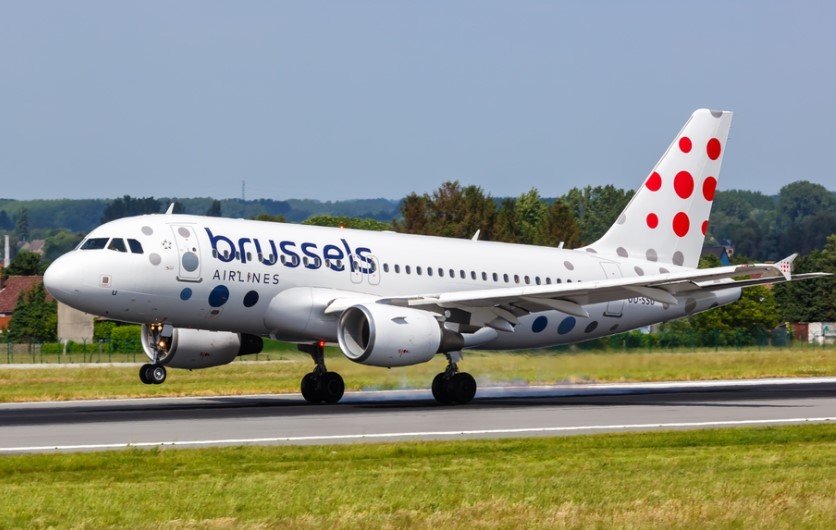Carrier to Resume Limited Flights Amid Fragile Calm in Israel
Brussels Airlines is preparing to resume passenger flights to Tel Aviv next month after months of suspensions triggered by flare-ups in regional violence. The first scheduled flight back is set for August 13.
The decision follows a broader move by Lufthansa Group — the Belgian airline’s parent company — to restore services to Israel, signaling a cautiously optimistic shift in the security outlook for international carriers in the Middle East. Lufthansa itself will restart flights beginning August 1.
A Long Pause and a Stop-Start Return
Brussels Airlines first suspended service to Tel Aviv late last year as Israel’s conflict with Iran-backed militias intensified, sending travel insurance premiums soaring and forcing carriers to rethink exposure. A brief resumption in February was cut short again by May.
It’s been an uneasy year for European airlines flying eastward. The Tel Aviv corridor, once seen as a reliable Mediterranean route with both tourism and business demand, became volatile almost overnight. For months, carriers weighed risks daily. Passengers were left scrambling.
One airline official said off-record, “We were watching everything — from Iron Dome interception rates to the distance of rocket strikes from Ben Gurion Airport.”

Why August Looks Different — For Now
So what’s changed? The answer: not everything, but just enough.
-
The Israeli government has reported a decrease in cross-border rocket attacks since early July.
-
U.S. and Qatari diplomacy has nudged factions in Gaza and Lebanon toward a tentative ceasefire.
-
Tel Aviv’s Ben Gurion Airport has operated without incident for nearly six straight weeks.
Even so, Brussels Airlines isn’t going all-in. It’s opting for just two weekly flights — a deliberate move. A test run, essentially.
“We continue to closely monitor the situation in the region,” the company said in its Wednesday statement. “Safety remains our highest priority.”
Still a Risk, Still Worth It?
Is it safe? Depends who you ask.
Security analysts say the flight path to Tel Aviv — particularly from European airspace — remains one of the most tightly scrutinized corridors globally. But no guarantees are being made.
A former El Al security consultant told Belgian media that “if Hamas or Hezbollah renew attacks, everything stops again. No question.”
But for the airline, staying grounded has a cost too — both in terms of market share and relationships with passengers. Belgian-Israeli families, tech workers, and NGOs rely on these routes. Some have been stuck with pricey detours via Rome, Vienna or Athens.
Here’s a quick look at how some routes were impacted since April:
| Airline | Status as of July 2025 | Weekly Flights (Pre-Conflict) | Current Flights |
|---|---|---|---|
| Brussels Airlines | Resuming August 13 | 4 | 0 |
| Lufthansa | Resuming August 1 | 7 | 0 |
| El Al | Continuing limited operations | 20+ | 14 |
| British Airways | Suspended indefinitely | 6 | 0 |
| Air France | Reviewing restart options | 5 | 0 |
Europe’s Airlines Learning to Fly Cautiously
This isn’t just about Brussels Airlines. It’s a broader test case for how European carriers are managing politically sensitive airspace.
Gone are the days when geopolitical risk was only factored in during headline-making wars. Now, even the threat of drone strikes or GPS jamming near civilian airports leads to immediate route reevaluations.
Two industry insiders from Lufthansa Group say a new “regional hotspot dashboard” was developed in-house to monitor risk in real time. The system feeds intelligence from news agencies, embassies, local authorities, and satellite data to senior route planners.
“You can’t just rely on FAA or EASA anymore,” one said. “Sometimes we get more from WhatsApp than from regulators.”
That’s how fragile the system feels. But also, how deeply connected it remains.
Tel Aviv Still Matters to Belgium’s Skies
Despite the caution, Brussels Airlines has reason to bet on Tel Aviv.
The city is a magnet for Belgian tech partnerships, medical research exchanges, and cultural tourism. Prior to the conflict, Tel Aviv was one of the top five non-European destinations for the airline. Business travel, especially in fintech and cybersecurity, had grown year-on-year.
And while other long-haul destinations like Kinshasa or New York remain staples, the Israeli route offers something different — a tight 4.5-hour hop with high-yield potential.
Passenger demand hasn’t disappeared either. Travel agents in Antwerp and Brussels report that they’ve kept lists of clients waiting for the route to reopen.
Two Flights, But a Lot Riding on Them
Brussels Airlines’ move to test just two weekly flights is more than cautious — it’s strategic. The route will likely begin with smaller aircraft, limited cabin offerings, and flexible rebooking.
But even two flights can carry a lot on their wings. Symbolically, they suggest a thaw. Commercial aviation often leads diplomatic normalization, even before embassies and handshakes.
If the flights run smoothly through August, expansion could follow by late September — timed around the Jewish High Holidays, when traffic typically surges.
Still, the airline hasn’t locked that in. Everything is conditional.
